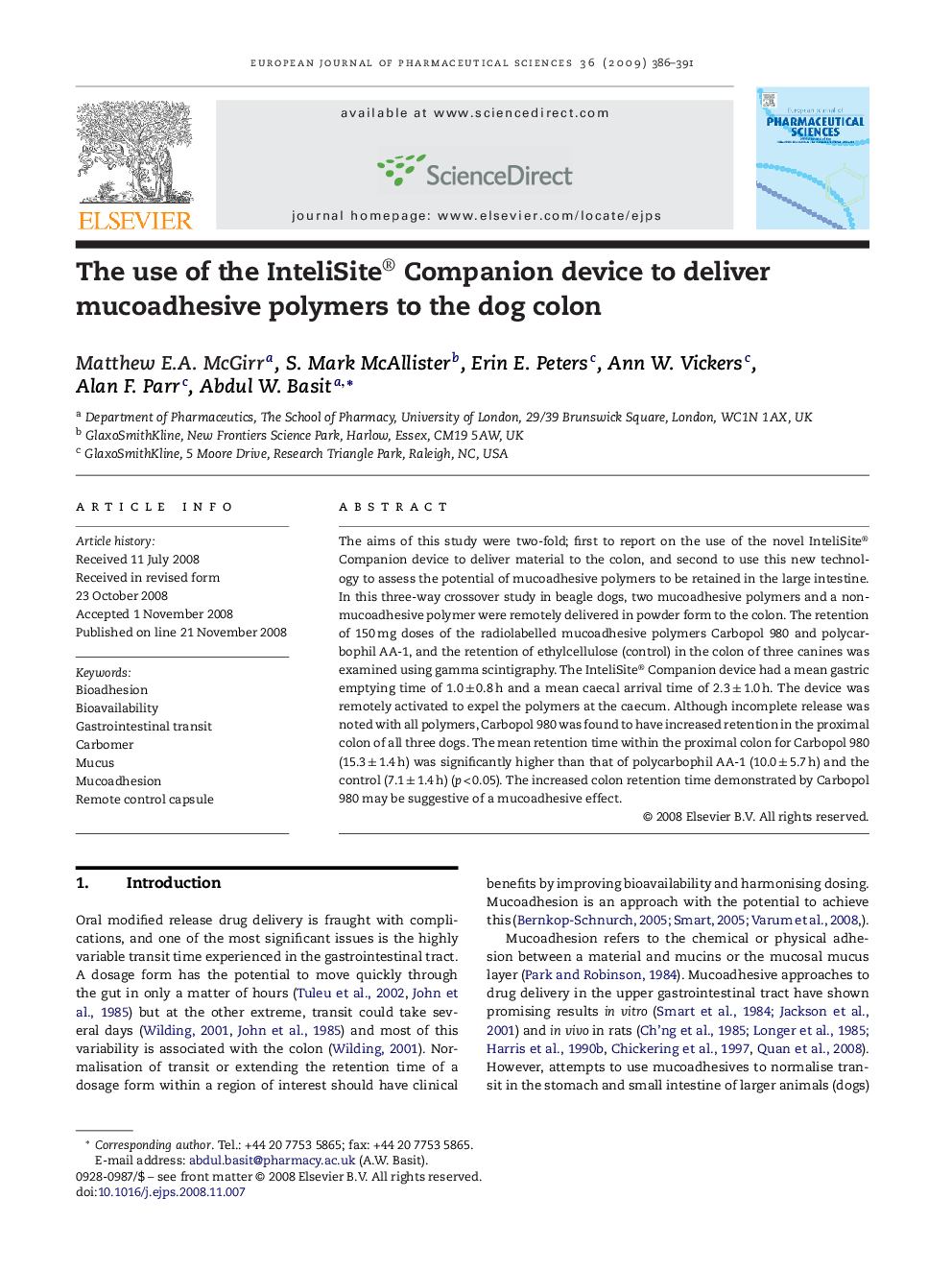| Article ID | Journal | Published Year | Pages | File Type |
|---|---|---|---|---|
| 2482139 | European Journal of Pharmaceutical Sciences | 2009 | 6 Pages |
The aims of this study were two-fold; first to report on the use of the novel InteliSite® Companion device to deliver material to the colon, and second to use this new technology to assess the potential of mucoadhesive polymers to be retained in the large intestine. In this three-way crossover study in beagle dogs, two mucoadhesive polymers and a non-mucoadhesive polymer were remotely delivered in powder form to the colon. The retention of 150 mg doses of the radiolabelled mucoadhesive polymers Carbopol 980 and polycarbophil AA-1, and the retention of ethylcellulose (control) in the colon of three canines was examined using gamma scintigraphy. The InteliSite® Companion device had a mean gastric emptying time of 1.0 ± 0.8 h and a mean caecal arrival time of 2.3 ± 1.0 h. The device was remotely activated to expel the polymers at the caecum. Although incomplete release was noted with all polymers, Carbopol 980 was found to have increased retention in the proximal colon of all three dogs. The mean retention time within the proximal colon for Carbopol 980 (15.3 ± 1.4 h) was significantly higher than that of polycarbophil AA-1 (10.0 ± 5.7 h) and the control (7.1 ± 1.4 h) (p < 0.05). The increased colon retention time demonstrated by Carbopol 980 may be suggestive of a mucoadhesive effect.
